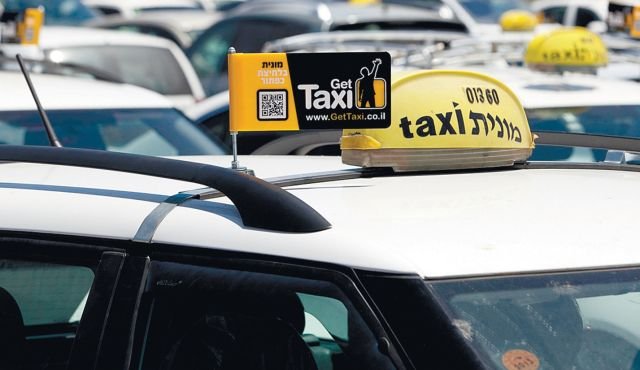Israeli taxi-hailing app company Gett has announced that it has raised $120 million in debt and equity and is readying for an IPO. Gett did not disclose the division between debt and equity in the current round, which follows the raising of $80 million by the company last June, for a total of $200 million at a valuation of $1.5 billion in this financing round.
Gett says that the amount raised will provide the finance required in advance of an IPO. The company declared its intention of carrying out an IPO in an e-mail message from its management to its employees last March. The flotation is expected to take place late this year or next year, but no target date has yet been set. A flotation of Gett at its valuation in the current financing round would be one of the largest by an Israeli autotech company since that of Mobileye.
Gett was founded in 2010 by its CEO Dave Waiser and Roy Mor. It provides on-demand transportation services. Most of its revenue derives from its taxi-hailing app, half from private customers and half from business customers. In addition, the company provides shared travel services to businesses, and a dispatch service.
Gett's existing investors participated in the current round, among them Acces, Baring, Vistok, MCI, and the Volkswagen group. A few months ago, German weekly "Der Spiegel" that Volkswagen would write down its investment in Gett from $300 million in 2016 to $18 million, because of Gett's failure to establish a substantial market presence in the face of larger rivals such as Uber, Lyft, Chinese company DiDi, and others. No confirmation of this has been received from Volkswagen or Gett. In its announcement, Gett states that the current financing round, with Volkswagen's participation, represents "an expression of confidence" in the company.
"In contrast to other companies like Lyft and Uber, which work only on the B2C model, our business model addresses the corporate sector, which is a much more stable and profitable model," Gett Israel CEO Mark Oun told "Globes". Gett predicts that it will turn profitable towards the end of the final quarter of 2019, Oun says. In other words, unlike Lyft and Uber, Gett seeks to go public when it is profitable.
Gett is currently active in the UK, Israel, and Russia. It claims to be the leading provider of on-demand transportation services to corporations in each one of these countries. Oun says that Gett serves more than 20,000 corporate customers.
In view of the tough competition from other ride-sharing companies with its taxi-hailing service, Gett has recently entered other fields, where competition is less fierce, such as its dispatch service. Sources have told 'Globes" in the past that profit margins on this service are higher than for the company's main activity. This service is on a small scale, but it gives Gett an additional growth engine.
Gett has undergone many twists and turns recently, and besides the report that its main investor, Volkswagen, had lost faith in it, Reuters reported in the first half of 2018 that the company was looking for a buyer for all its activity as a possible alternative to a flotation.
Related News

